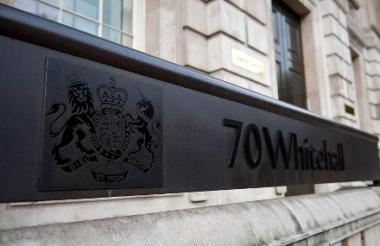The government has announced changes to its procurement practices to boost social value considerations and reduce barriers for social enterprises.
In a speech to Business Services Association Annual Chairman’s Dinner yesterday, cabinet minister David Lidington said central government would now use a new model to evaluate the social impact of its contracts to outsource public services.
Lidington said the changes would remove barriers for "small businesses and social enterprises” to central government contracts, worth £48bn a year, while “improving skills and employment opportunities for the disadvantaged and increasing equality and diversity in the workforce”.
He said the approach for central government procurement will be based on a model already being successfully used for assessing social impact in parts of local government.
“We will ensure this further levels the playing field for our small businesses and social enterprises - they are closest to our communities and will be in the best possible position to deliver social value through the contract,” he said.
However, he added: “The overarching objective for the government’s commercial activities will remain achieving the best commercial outcome but it is right that we also use government’s purchasing power to support key social outcomes.”
‘Procurement changes can grow the sector’
Andrew O’Brien, director of external affairs at Social Enterprise UK, said the government was right to “talk about supporting social enterprise and small businesses in the same breath”.
He said: “There are over 100,000 social enterprises contributing £60bn to UK GDP and we are an important part of the economy. Better government procurement can grow the sector even further.
“Reforming procurement through increasing social value matters because the way that we spend public money should reflect the kind of society we want to see.”
Meanwhile, Clarity, a charity and social enterprise employing people with disabilities, said it welcomed the changes.
Camilla Marcus-Dew, co-founder, said: “Working with the Cabinet Office has made a massive difference to our social enterprise - enabling us to grow and boost our revenue.”
Lidington also announced measures to protect the continuation of public services in the event of a large contractor’s collapse, such as Carillion earlier this year.
These include the requirement for contractors to create “living wills” – a plan for continued services in the event of contractor collapse.
'More profound changes'
Kathy Evans, chief executive of Children England, said the changes were welcome but could go further.
She said: “Yesterday’s announcements include several steps in the right direction to tackle problems in public commissioning, especially strengthening prompt payment obligations, and stepping up the role of social value across Whitehall procurement.
“It was a shame not to hear how the critical report by Public Administration and Constituional Affairs Committee is being responded to by government, as that laid down several much more profound challenges - including the need to halt payment by results, and for government to take wholesale responsibility for the sustainability of public monopsonies.
“'Living wills' for individual contractors just won't cut it when it's public commissioners who hold the duties to ensure continuity of service in the event of business failures.”
Social Value Act
The Public Service (Social Value) Act, which requires commissioners to consider the wider value added to society by each bidder, came into force in 2013.
Lidington announced in June changes to the act which will now require all major procurements to “explicitly evaluate" those benefits.
The measures were cast an attempt to level the playing field for charities, social enterprises and other civil society organisations.
|
Related articles












